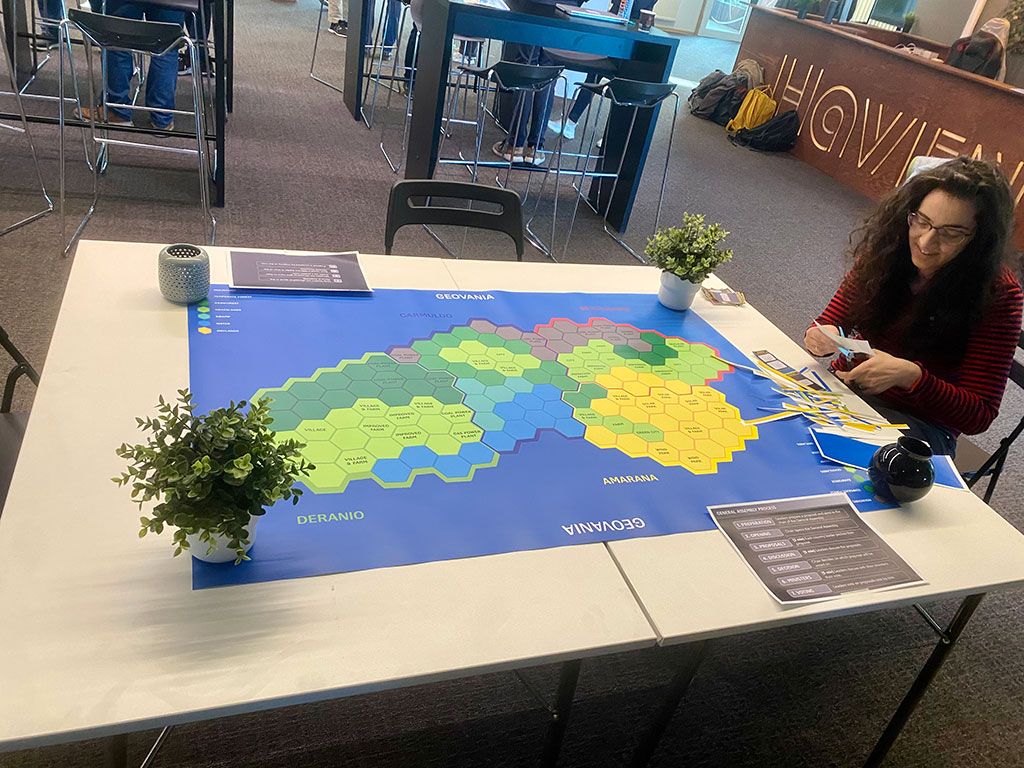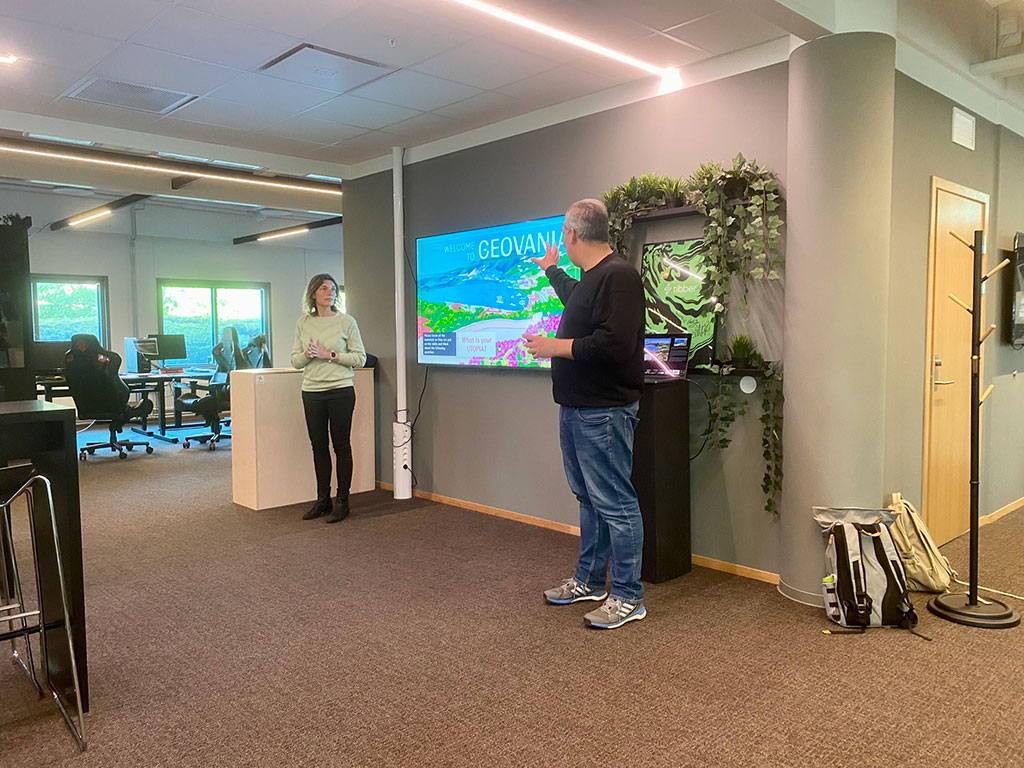
The history of the game
The game has humble origins. It was first developed by Daniel Scholten and Ivo Bouwmans as an offline exercise for the CoSEM master course Socio-Technology of Future Energy Systems at Delft University of Technology in 2015-2016. Within one lecture students got an introduction to the topic and game before playing it. A more elaborate version also existed for guest lectures.
The exercise put students in the lead of four fictional countries facing the need to achieve a smooth global energy transition. They had to balance national interests in energy security and industry with a collective interest in stability and preventing climate disaster. One person acted as the president who takes the final decision on strategy, with three others acting as ambassadors negotiating with the other countries. The four countries had different resource endowments and economic profiles, making the energy transition more an opportunity or a threat to them. In a series of negotiation rounds students had to strategize on which actions to take and which agreements to reach, with each round representing roughly 5-10 years of real time and ending after 3-6 rounds. It was all about the process and learning the challenges policy makers face in international negotiations. If students would manage to prevent climate disaster, some probably sold out too many national interests. If they did not, they got to understand the difficulties involved.
At the time, the geopolitics of renewable energy or energy transition was still very much a novel topic. Most attention in terms of energy geopolitics went to oil and natural gas, whereas energy transition literature focused on achieving domestic transitions, not their implications. There was also plenty of attention to climate politics, but the geopolitics of renewable energy and the dynamics of achieving a smooth global transition remained noticeably ignored. This has all changed in recent years. Not only did academic literature, IRENA, and news outlets pick up the topic, the Russian attack on Ukraine and increasing US-Chinese rivalry has led to a more strategic approach to energy, natural resources, and global politics in general.
In the meantime, collaboration between the universities of Delft and Stavanger became more structural with guest lectures and joint book projects. This culminated in an Erasmus+ project proposal in 2019-2020 for the online simulation game, with Thomas Sattich taking the lead, and the Universities of Ghent and Munich joining in the persons of Thijs van de Graaf and Miranda Schreurs. While the core idea was retained, the game would be developed to be playable by students of all involved universities at the same time. It also greatly enhances countries’ internal political dimension and physical restraints in game money and energy flows.




